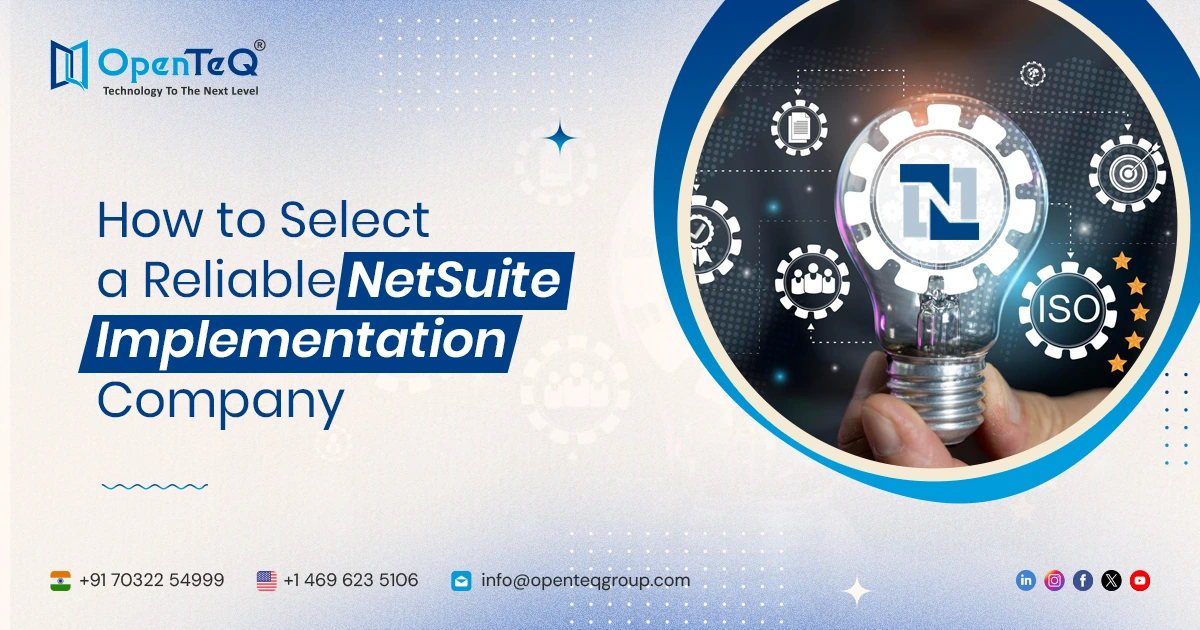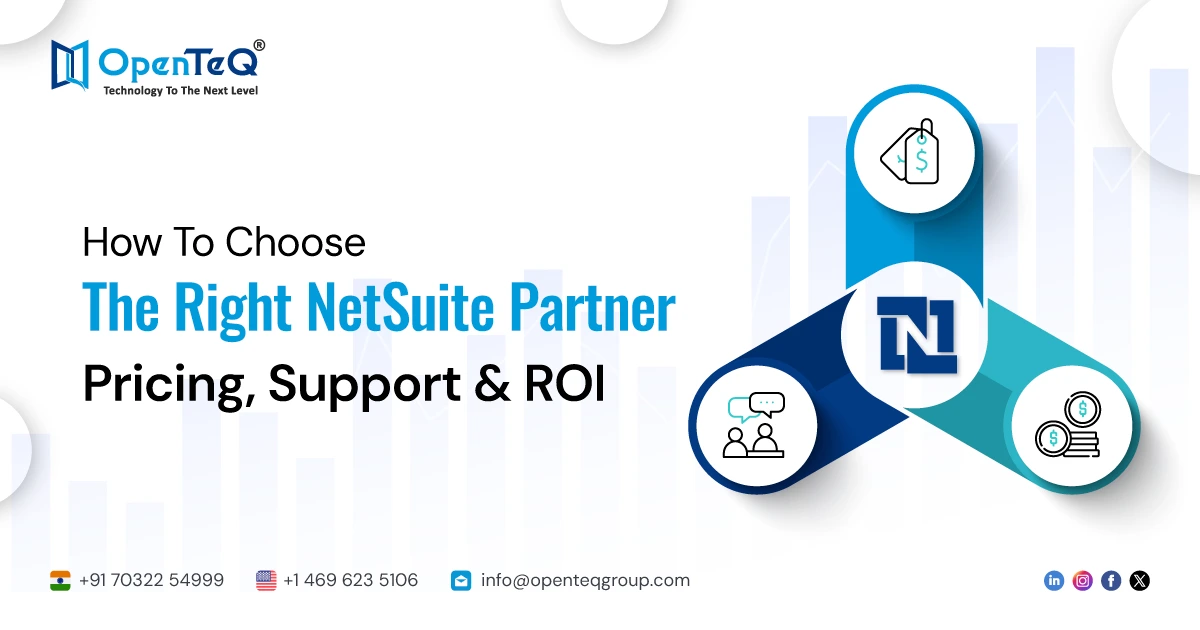8 Essential Steps for a Successful NetSuite Project Implementation
Are you considering implementing NetSuite for your business? If so, you've come to the right place. In this article, we'll walk you through the 10 essential steps for a successful NetSuite project implementation.
Remember, a well-executed NetSuite project can transform your business. So, don't leave anything to chance – follow our 8 essential steps for a seamless and successful implementation.
Key considerations before starting a NetSuite project
Implementing NetSuite is a significant undertaking, and it's crucial to start on the right foot. Before diving into the implementation process, there are a few key considerations to keep in mind. Firstly, clearly define your project goals and objectives. What are you hoping to achieve with NetSuite? Are you looking to streamline your financial operations, improve supply chain management, or enhance customer relationship management? By clearly defining your goals, you can tailor the implementation to meet your specific needs.
Another important consideration is assembling a dedicated implementation team. This team should consist of individuals from various departments who will be involved in the project. Having a cross-functional team ensures that all perspectives are considered, and the implementation aligns with the overall business objectives.
OpenTeQ Technologies Selected as a NetSuite Partner for Seamless ERP Integration
Defining project goals and objectives: The first step in any successful NetSuite project implementation is defining clear and measurable goals and objectives. Take the time to identify what you want to achieve with NetSuite and how it aligns with your overall business strategy. Are you aiming to improve operational efficiency, increase revenue, or streamline your financial processes? By clearly defining your goals, you can design an implementation plan that addresses these specific objectives. Once you have your goals in place, break them down into smaller, actionable objectives. This will help you track progress throughout the implementation process and ensure that you stay focused on your end goals.
Creating a project implementation plan: A well-structured project implementation plan is crucial for a successful NetSuite implementation. This plan serves as a roadmap that outlines the tasks, timelines, and resources required at each stage of the project. Start by identifying the key milestones and deliverables for the implementation. These milestones could include completing system configuration, conducting user acceptance testing, and training staff on using NetSuite effectively. Next, break down the implementation plan into smaller tasks and assign them to the appropriate team members. It's essential to set realistic timelines for each task and ensure that there is clear accountability for their completion. Regularly review the implementation plan to track progress and make any necessary adjustments along the way.
Gathering and analyzing data for system configuration: NetSuite's power lies in its ability to integrate and consolidate data from various sources. To make the most of this capability, it's crucial to gather and analyze your existing data before configuring NetSuite. Start by identifying the data sources that need to be integrated with NetSuite, such as your CRM system, ERP software, or e-commerce platform. Determine the data fields that need to be mapped and establish data quality standards for accuracy and consistency. Once you have gathered the necessary data, perform a thorough analysis to identify any data gaps or inconsistencies. This analysis will help you determine the best approach for configuring NetSuite to meet your specific business needs.
Customizing NetSuite to meet specific business needs: One of the key advantages of NetSuite is its flexibility and scalability. It allows you to customize the system to meet your specific business needs. During the implementation process, work closely with your implementation team to configure NetSuite based on your unique requirements. This could include setting up custom fields, creating personalized dashboards and reports, and configuring workflows to automate manual processes. When customizing NetSuite, it's important to strike a balance between meeting your specific needs and maintaining system integrity. Avoid over-customization, as it can lead to increased complexity and maintenance costs down the line. Focus on configuring NetSuite to support your critical business processes and ensure that the customization aligns with your long-term goals.
Testing and quality assurance processes: Thorough testing and quality assurance are crucial steps in any NetSuite implementation. Before going live, it's essential to conduct comprehensive testing to ensure that the system functions as intended and meets your business requirements. Start by creating test scenarios that cover all critical processes and functionalities. Test the system thoroughly, including data entry, workflow automation, reporting, and integrations with other systems. Document any issues or bugs encountered during testing and work closely with your implementation team to resolve them. Conduct multiple rounds of testing to ensure that all identified issues have been addressed.
User training and change management: Implementing NetSuite involves a significant change for your organization, and it's essential to prepare your staff for this transition. User training and change management play a crucial role in the success of NetSuite implementation. Start by identifying the training needs of your staff and develop a comprehensive training plan that covers all aspects of using NetSuite effectively. Offer both classroom-style training sessions and hands-on workshops to cater to different learning styles. Provide training materials, user guides, and online resources to support ongoing learning. Encourage staff to ask questions and provide feedback during the training process.
Go-live and post-implementation support: When the day arrives to go live with NetSuite, it's important to have a well-defined plan in place. Ensure that all necessary data has been migrated, and all critical processes have been tested thoroughly. Communicate the go-live date to all stakeholders and provide them with any necessary instructions or guidelines for using NetSuite. During the go-live phase, closely monitor the system performance and address any issues or concerns promptly. Provide immediate support to end-users and address any questions or challenges they may encounter. Conduct regular post-implementation reviews to gather feedback and identify areas for improvement.
Common challenges and best practices for NetSuite Project Implementation:Implementing NetSuite is a complex process, and there are common challenges that organizations may face along the way. These challenges include data migration issues, resistance to change from staff, and the need for ongoing system maintenance and upgrades. However, by following best practices and learning from the experiences of others, you can overcome these challenges and ensure a successful implementation. One best practice is to engage a NetSuite Implementation Partner with expertise and experience in your industry. They can provide valuable insights and guidance throughout the implementation process.
In conclusion, implementing NetSuite requires careful planning, execution, and ongoing support. By following the 8 essential steps outlined in this article, you can set your organization up for a successful NetSuite implementation. Remember to define your project goals, establish a dedicated implementation team, and create a comprehensive implementation plan. Gather and analyze your data, customize NetSuite to meet your specific needs, and conduct thorough testing and user training. Finally, go live with NetSuite, provide ongoing post-implementation support, and learn from the experiences of others.
With these steps, you can leverage the power of NetSuite to enhance your business operations and drive growth.Contact OpenTeQ today for best NetSuite Project Implementation at info@openteqgroup.com or contact at +91-7032254999 or +1 602 666 8247.







